Ornamental peppers – what are they and how do you grow them?
Bring unique pops of color to your backyard with ornamental peppers
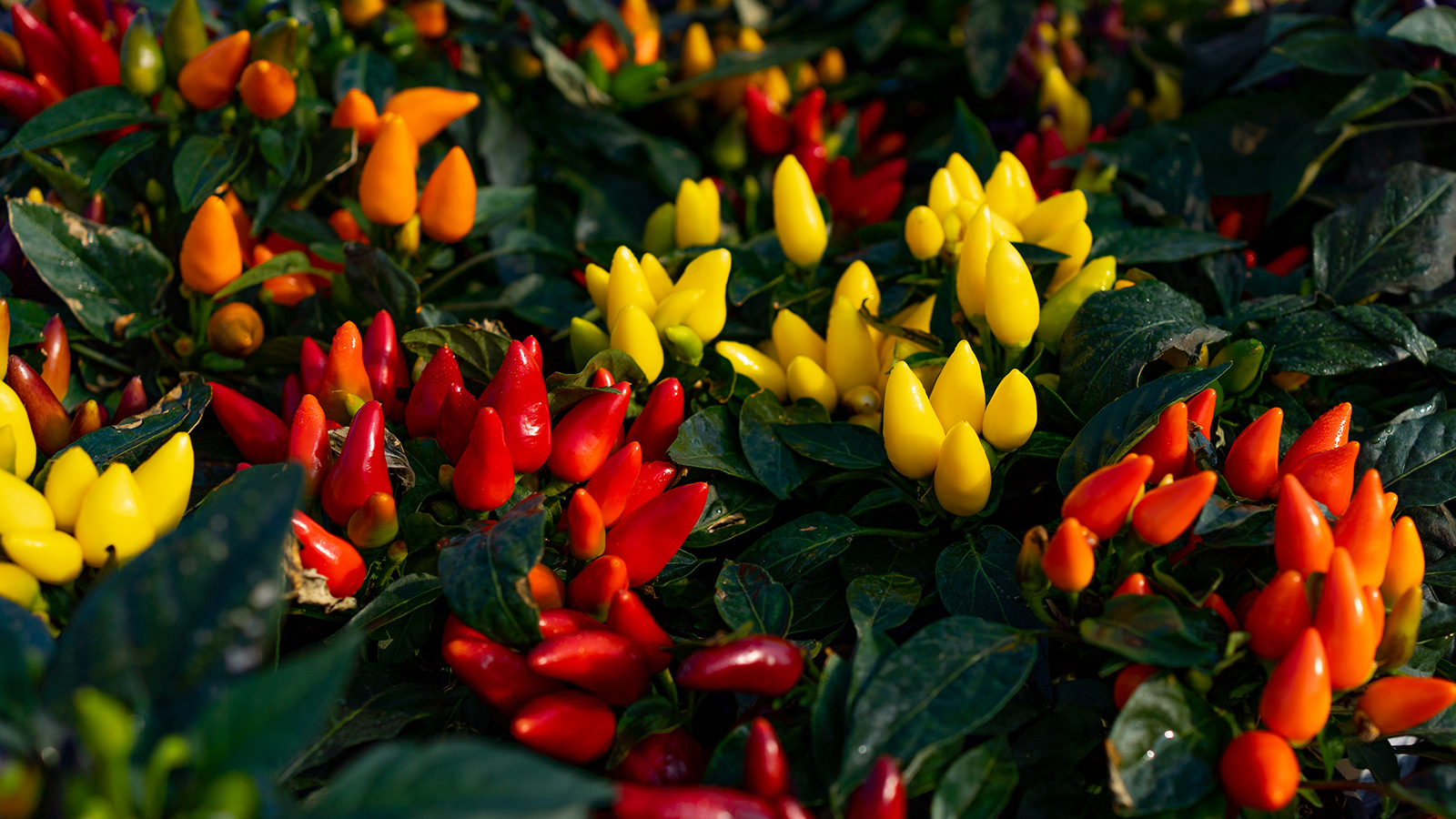

Ornamental pepper plants are very similar to regular pepper plants, save the fact they are grown primarily for their aesthetic value rather than for taste.
Midwinter is the ideal time to start sowing ornamental chilli pepper seeds and mature plants can be found at garden retailers most of the year. 'Ornamental peppers are great fun and come in a variety of glossy shades, shapes and sizes,' says Botanist Ashley Nussman-Berry.
'They are great if you hope to add a pop of color to your backyard or indoor plant collection,' she says.
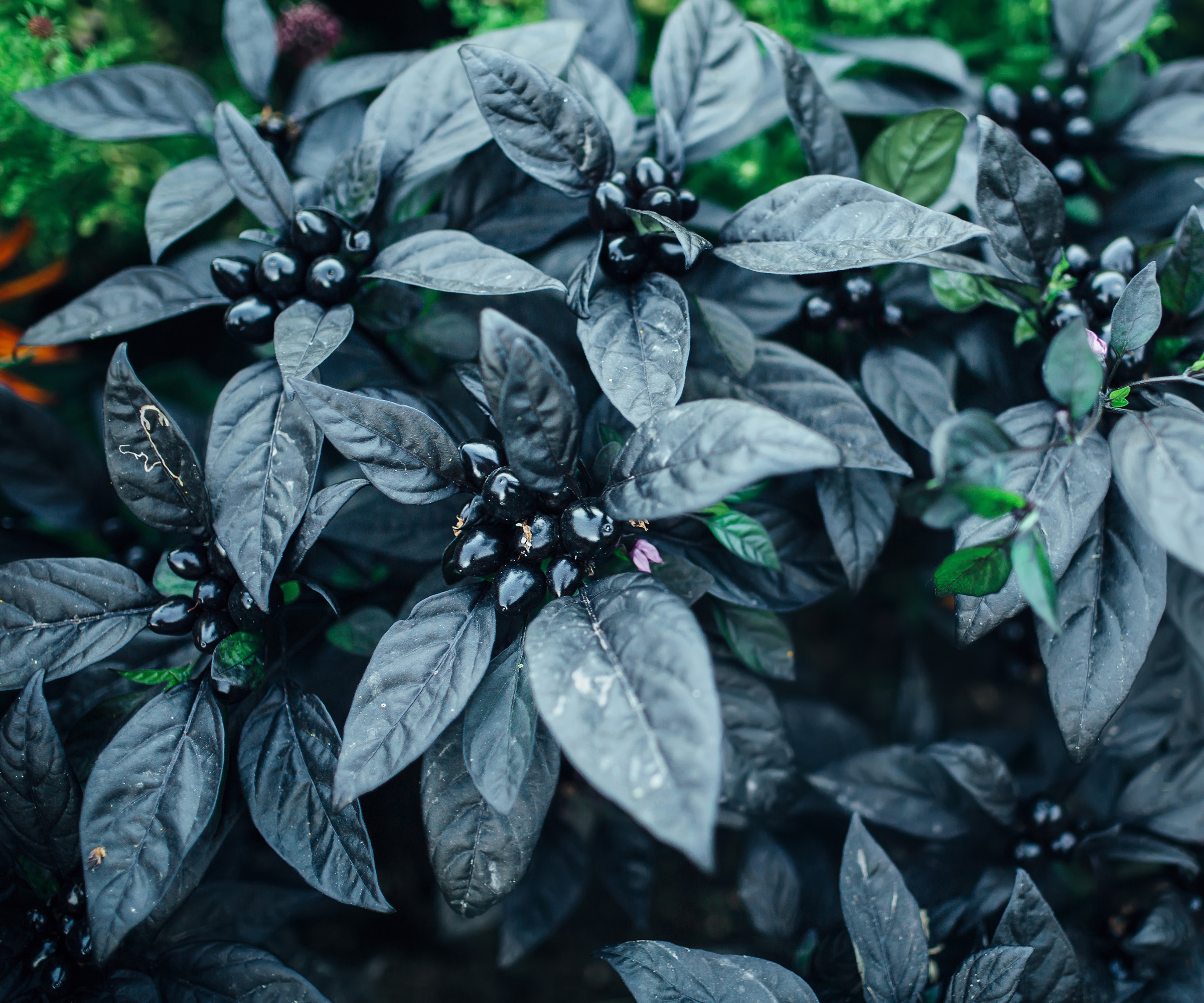
Ornamental pepper 'Black Pearl' variety
What are ornamental pepper plants?
'Ornamental peppers are a type of pepper plant. They are usually grown to be purely aesthetic and are not actually eaten,' explains Ashley.
They bear bright fruit and lots of it. Creating a decorative display which brings something a little more unique than floral color. Their spiky or rounded shaped fruits are ultra shiny, like bell peppers, and come in some surprising shades.
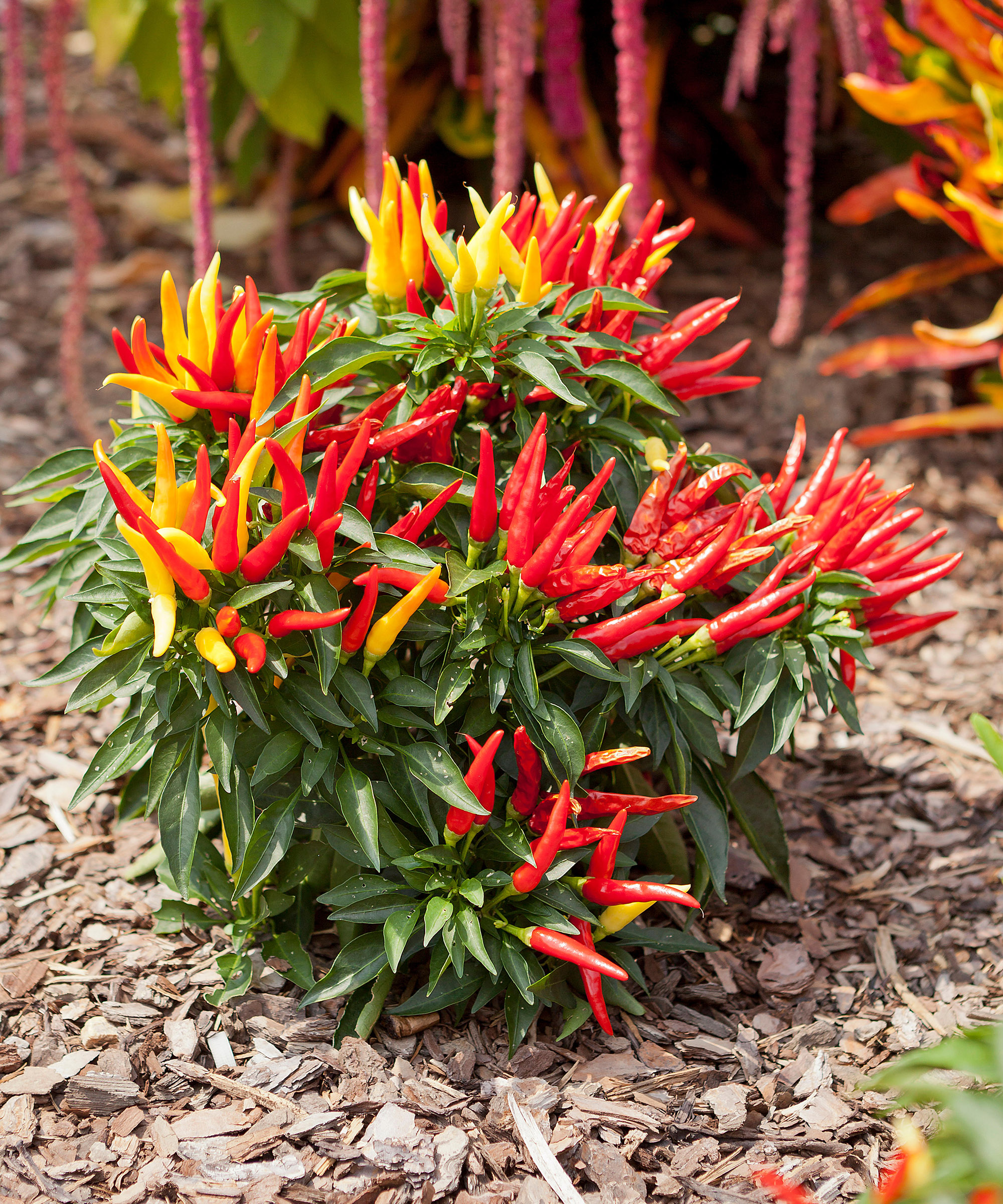
'Chilly chilli' will create interest in a sunny border

Founder of Black Planters, Ashley has a strong educational background in plants (botany, natural science, and biology degrees), an in-depth understanding of botany and horticulture, unwavering commitment to inclusivity, and a passion for sharing knowledge.
How to grow ornamental peppers from seed
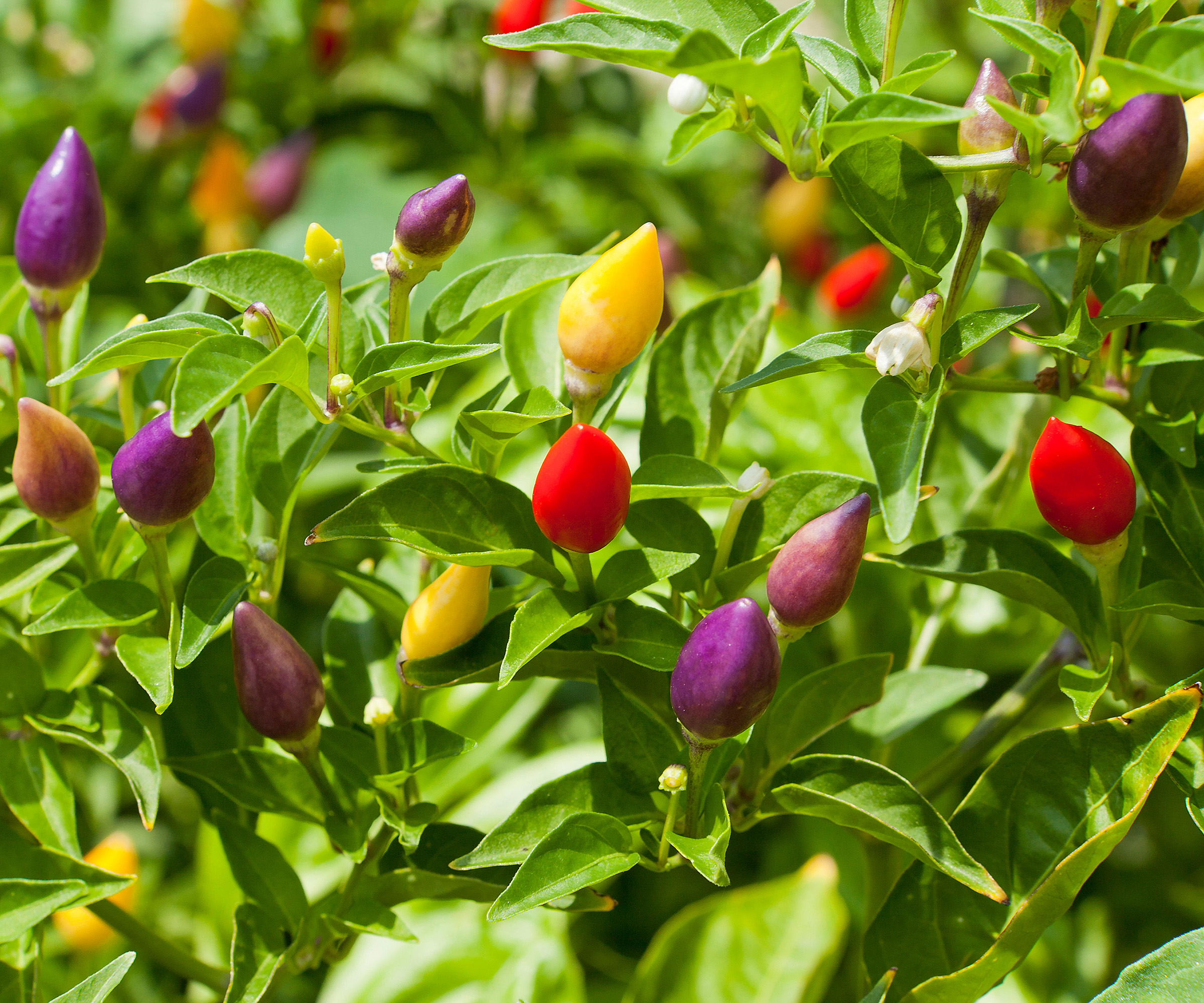
'Prairie Fire' is a staunch variety of ornamental pepper
'I start my pepper seeds indoors 6-8 weeks before the last frost,' says Ashley. They like heat to grow so if you don't already have one, this would be the ideal project for a heated propagator. Try this Super Sprouter Premium Heated Propagation Kit at Walmart.
Growing peppers from seed is a game of patience as they are slow to germinate, taking one or even two months. Seeds should be spread thinly - giving them plenty of space to grow - on top of flattened damp compost. Finish with a sprinkling of compost.
If you don't have a heated propagator, position them indoors on a bright windowsill, in seed trays with clear plastic lids. You could also sow seeds in individual pots inside a clear plastic bag to create a greenhouse effect.
'I make sure to keep them moist and never let them dry out,' says Ashley. Only transplant your seedlings when they are big enough to handle. They can then be repotted ready for planting out alongside companion plants for peppers.
How to plant ornamental peppers
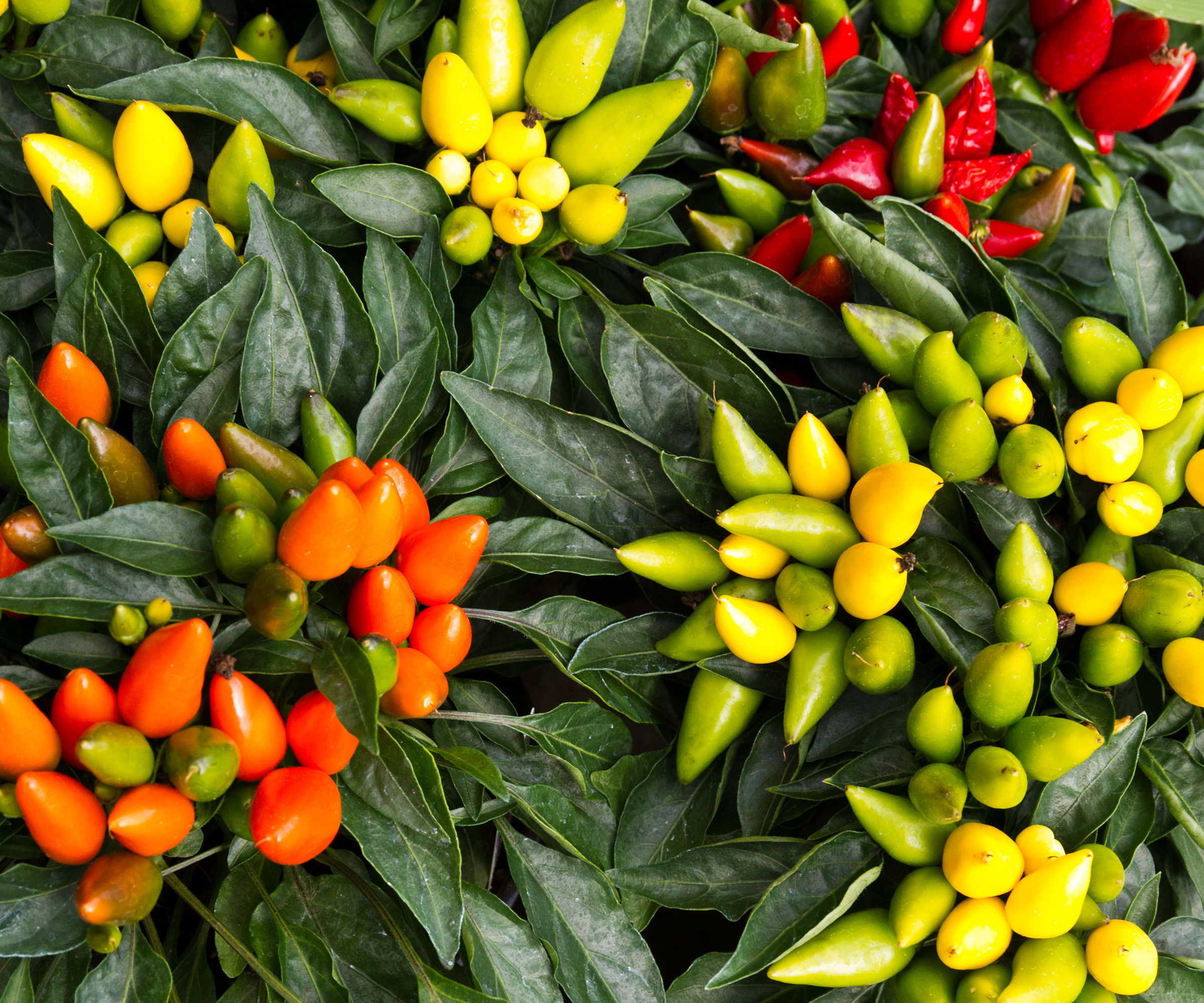
Well draining soil will stop your pepper plants from becoming waterlogged
As ornamental peppers are decorative you'll want to find a spot for them in your backyard where the bright baubles of red, yellow and orange can be enjoyed.
Like tomatoes, all pepper plants need plenty of sunlight. 'Make sure they get at least 6-8 hours of direct sunlight a day, so place them in a sunny spot,' says Ashley.
If you're growing multiple plants together then Ashley advises spacing them about a foot apart. 'Make sure your soil is well-draining,' she says.
'It’s best to grow them during warmer times of the year because they thrive in temperatures of 70˚F upward. I like to set my watering system on a timer because consistent watering is key to success with ornamental peppers,' says Ashley.
Caring for ornamental peppers
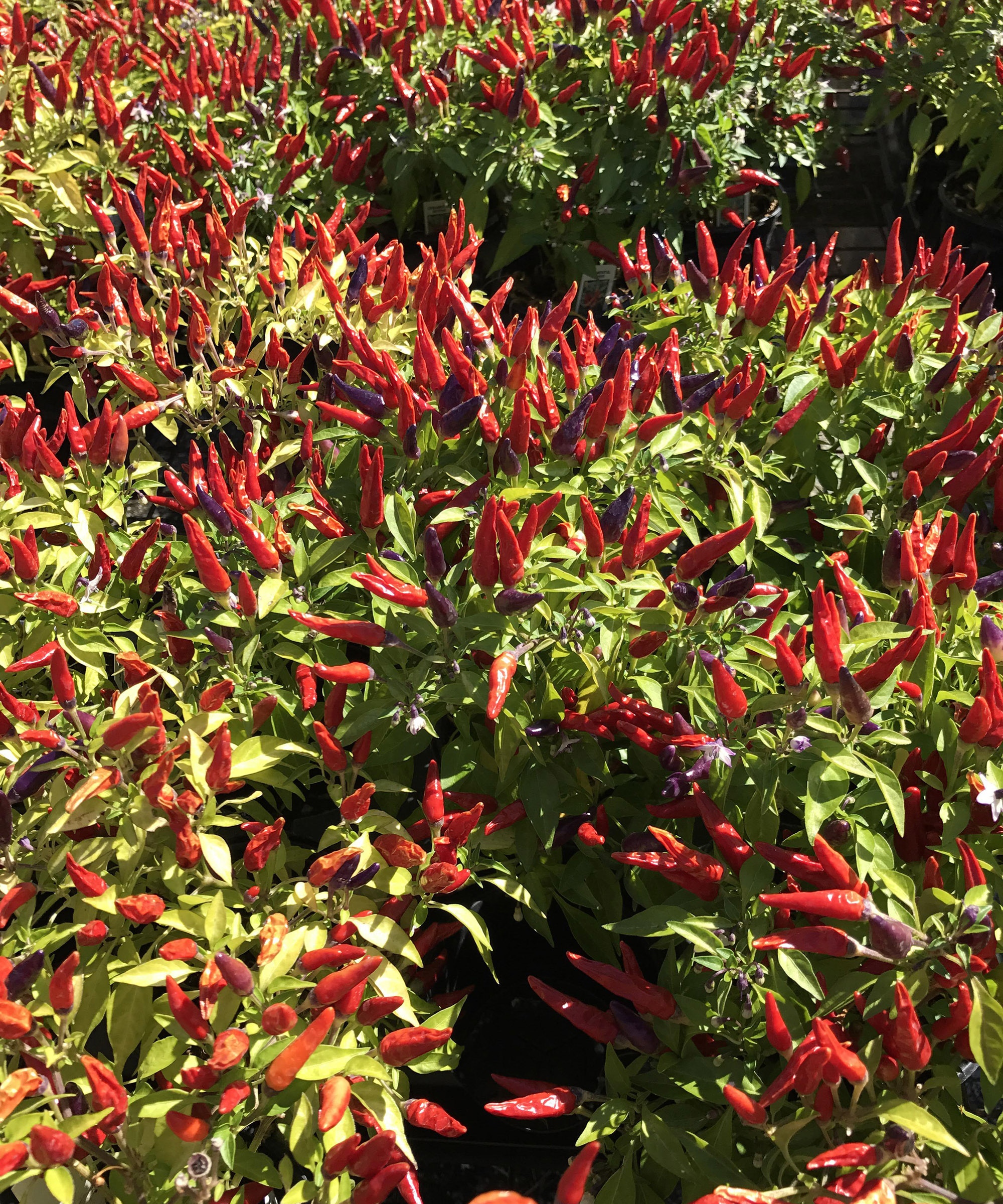
Ornamental pepper plants will thrive in the right spot
Once you find the right position for your peppers, where they will get plenty of sun and drainage you will find that they are good at taking care of themselves.
'They are very easy to grow and will flourish with minimal care,' says Ashley. 'Be sure you're not overwatering plants, and equally don't let it get too dry.'
'You have to find a happy medium with watering so that’s why I highly recommend a timed system that waters once or twice a day.'
Common problems with ornamental peppers
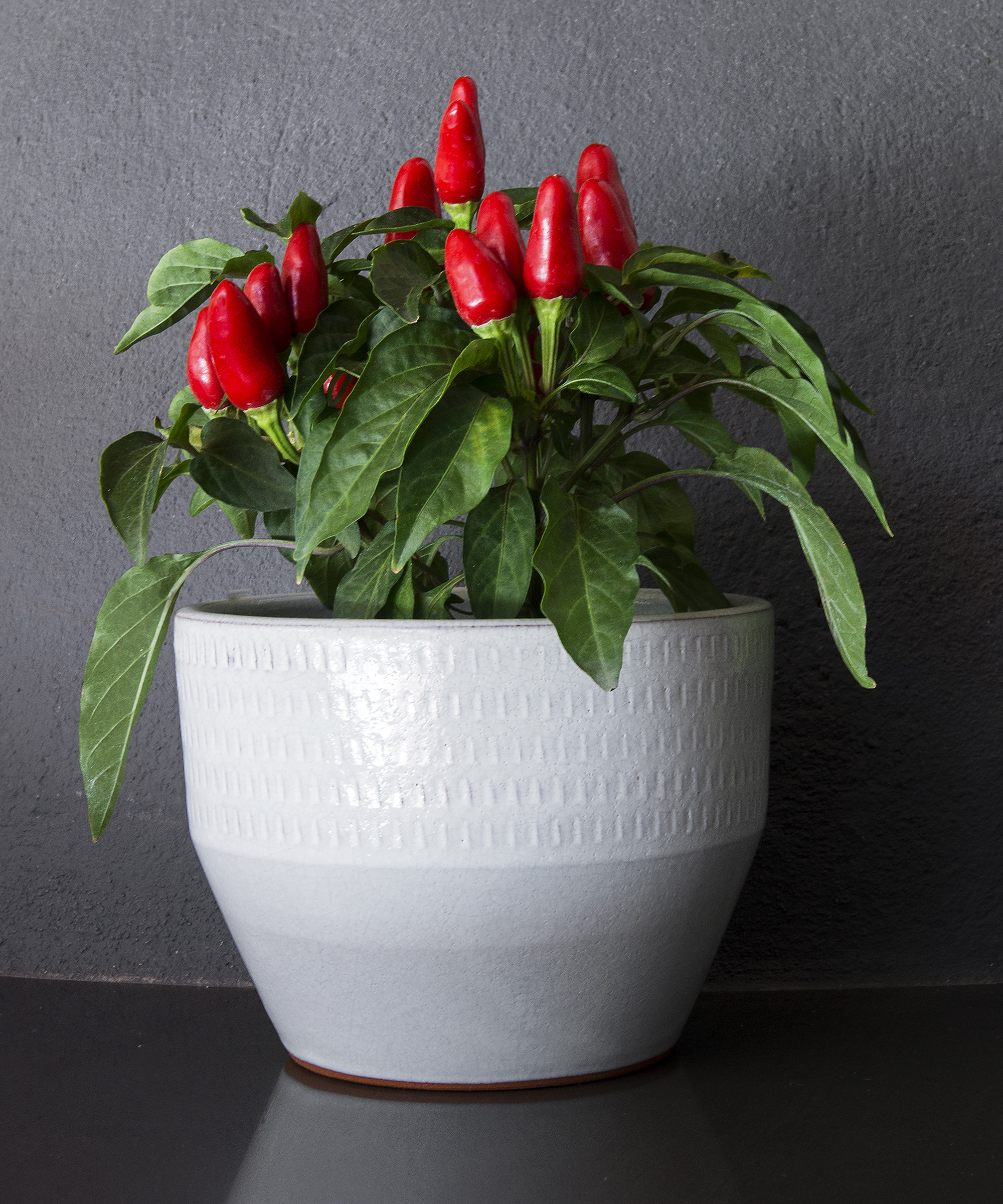
Ornamental peppers are a bold choice as a decorative indoor plant
There are several issues that can affect ornamental peppers. As these are ornamental plants, it's important to keep them looking their best by removing unsightly leaves.
'Bacterial and fungal infections are common, but these can be avoided if you space them correctly and water them from the base. Do not water the leaves,' says Ashley.
'If water does touch the leaves, the plant will be okay as long as the water has time to dry and the leaf is not sitting in water,' she says
Ashley highlights that aphids, whiteflies, and spider mites are all common pests associated with peppers. But preventative measures can be taken to keep them in check.
'Using organic pesticides like a neem oil mixture can stop them. Check your plants regularly because they're easier to fix if any problems are caught early on,' says Ashley. You can try Bonide Captain Jack's Neem Oil at Amazon.
FAQs
Can you eat ornamental peppers?
Ornamental peppers are bred for their appearance not their flavor. 'You could eat them, but I would not recommend it because these varieties are usually bitter and/or extremely hot,' says botanist Ashley Nussman-Berry.
Can you grow ornamental peppers indoors?
'You can grow them indoors if you have a spot that gets direct sun for part of the day or if you have grow lights, you can grow them anywhere in your home,' says botanist Ashley Nussman-Berry.
Don't give them too much water, but don't allow them to dry out. When growing ornamental peppers in pots, you need to make sure you there is plenty of drainage.
Whether planted in a container, window box, or as part of a border, ornamental peppers will make a vibrant addition to your backyard. Why not try planting them into a low maintenance garden border.
Sign up to the Homes & Gardens newsletter
Design expertise in your inbox – from inspiring decorating ideas and beautiful celebrity homes to practical gardening advice and shopping round-ups.

Teresa was part of a team that launched Easy Gardens magazine two years ago and edited it for some time. Teresa has been a Gardens Editor at Homes & Gardens, Country Homes & Interiors and Living Etc magazine since 2020 and has developed close working relationships with top garden designers, and has been exposed to an array of rich garden content and expertise.
-
 Elton John's home fragrance collection is 'a tribute to the optimism and beauty that spring brings' – and it's under $45 to scent your home this April
Elton John's home fragrance collection is 'a tribute to the optimism and beauty that spring brings' – and it's under $45 to scent your home this AprilSlatkin + Co. teamed up with Elton John to create a home scent inspired by his historic Woodside Estate – they're beautiful, affordable, and selling quickly
By Sophie Edwards
-
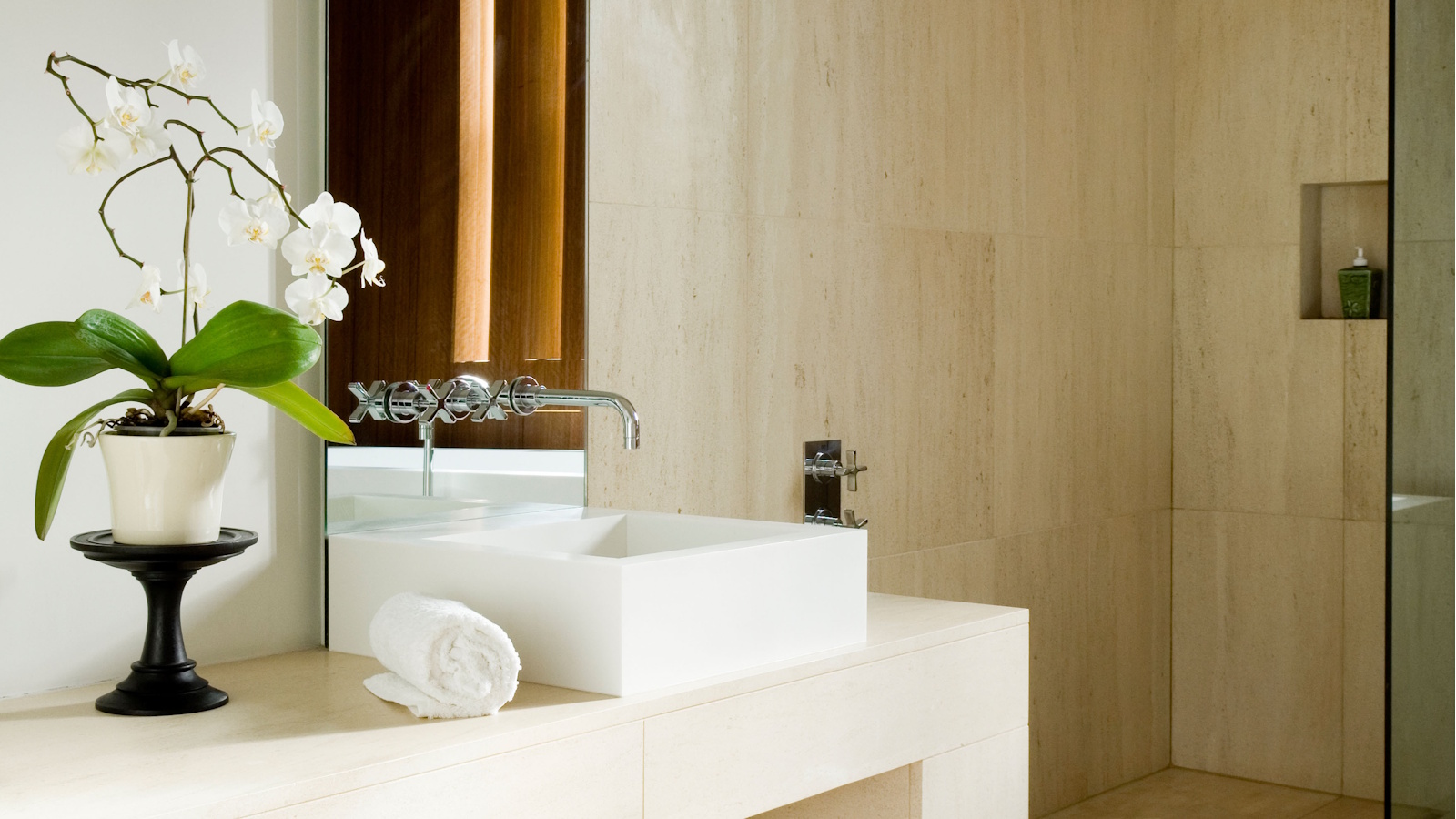 My orchid's leaves haven't wrinkled since moving it to this exact spot in my home – it's the easiest hack to keep these flowering houseplants hydrated
My orchid's leaves haven't wrinkled since moving it to this exact spot in my home – it's the easiest hack to keep these flowering houseplants hydratedDehydrated orchids can perk up again in the environment of a bathroom
By Tenielle Jordison